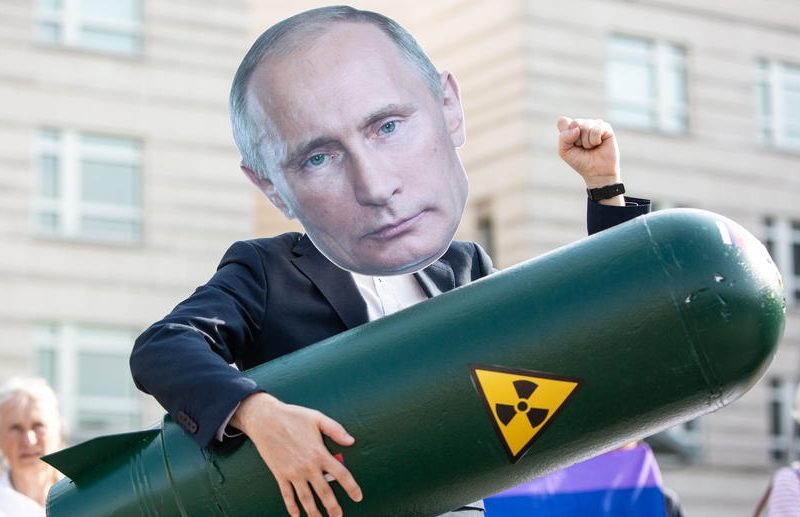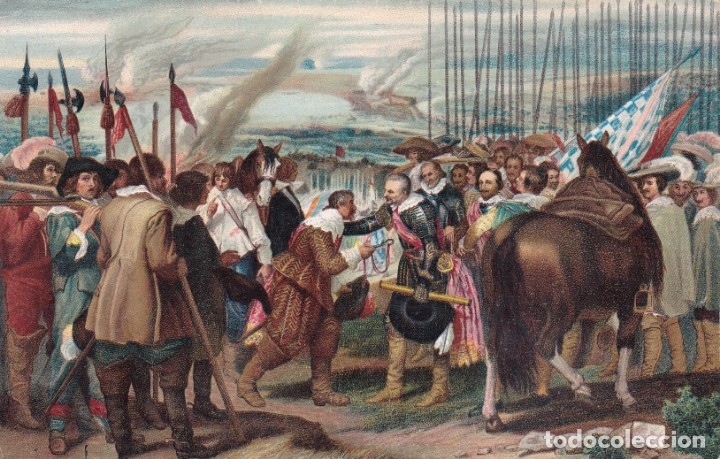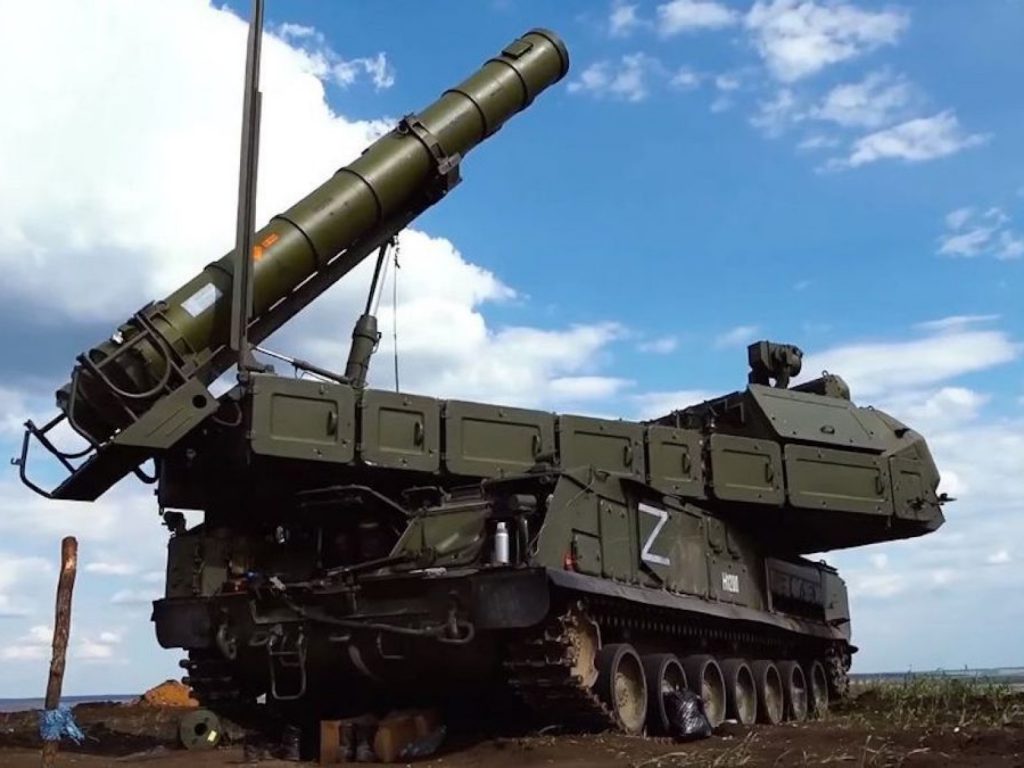 Almost a year after Putin launched his so-called special military operation against Ukraine, the war in that country has clearly turned into a struggle of attrition. Historically speaking, such struggles are by no means rare. Clausewitz, indeed, argued that any offensive that fails to break the enemy’s will and reach its objective within a reasonable time will end up as a war of attrition. In particular, two struggles are worth mentioning in this context. One was waged by Germany, Britain and France on the Western Front and lasted from late 1914 to the end of 1918. The other was waged by Iran and Iraq and lasted from September 1980 to August 1988. With these and some other armed conflicts in mind, let us examine the courses Putin still has open to him.
Almost a year after Putin launched his so-called special military operation against Ukraine, the war in that country has clearly turned into a struggle of attrition. Historically speaking, such struggles are by no means rare. Clausewitz, indeed, argued that any offensive that fails to break the enemy’s will and reach its objective within a reasonable time will end up as a war of attrition. In particular, two struggles are worth mentioning in this context. One was waged by Germany, Britain and France on the Western Front and lasted from late 1914 to the end of 1918. The other was waged by Iran and Iraq and lasted from September 1980 to August 1988. With these and some other armed conflicts in mind, let us examine the courses Putin still has open to him.
First, he may simply allow the war to go on just as it has over the last few months. True, the ongoing hostilities as well as Western-imposed sanctions have not been without some, perhaps considerable, negative effect on the Russian economy. On the other hand, those in the West who hoped to use economic pressure to win the war relatively quickly and painlessly have been proved wrong. In part, this is due to Russia’s own enormous resources, especially energy, raw materials, and, as the Germans learnt in World War II, its sheer size; “don’t’ march on Moscow,” a maxim attributed to British Field-Marshal Bernhard Montgomery, is as relevant today as it was in the days of Sweden’s Karl XII and Napoleon. Putin may well hope that, simply by allowing the war to continue for as long as it may take, he will end by breaking Ukraine’s will and/or split up the coalition that is currently arrayed against him.
Second, he may mobilize additional forces, equip them with whatever weapons he still has in reserve or is able to produce, train them, and use them to launch more battlefield offensives. This is what both the Allies in World War I and the Iranians during their war against Iraq did. In the first case it worked, though only after four years of ferocious struggle and only at a horrendous cost that left both France and Britain drained of manpower and treasure. In the second it did not work at all; masses of young Iranians, many of them wearing Korean-manufactured golden plastic keys to expedite them on their journey to paradise, proved no match for the firepower, provided by both East and West, the Iraqis were able to deploy.
Third, he may switch from trying to defeat his opponents’ armed forces in the field to attacking their rear. “To make a dessert and call it peace,” as the historian Tacitus, referring to Rome’s conquest of Britain, put it twenty centuries ago. At the moment this seems to be Putin’s preferred option. Compliments of Iran, his drones have been attacking Ukrainian cities and more may very well be on the way. On the other hand, whether such attracts can really be carried to the point where the Ukrainians’ will to fight begins to crack is doubtful. Starting in 1963 and ending in 1973, three times as many bombs (by weight) were dropped on Vietnam as on Germany and Japan combined during World War II. Yet when the smoke cleared it was the US which withdrew and North Vietnam and the Viet-Cong which triumphed.
Fourth, bring in Belarus. Right from the beginning of armed conflict, belligerents of all times and places have always done their best to gain allies. Right from the beginning of the present war, Putin’s most important objective in this respect has been to get Belarussian dictator Alexander Lukashenko to assist him as much as possible. As a look at the map will confirm, such intervention may open a third, northern front against Ukraine in addition to the two, one in the east and one in the south, that already exist. Putin’s recent meeting with Belarussian dictator Lukashenko may be a big step in that direction. On the other hand, it may be a case of Lukashenko doing his best to stay out of the war without provoking Putin too much. He has been playing a dangerous game—so far, as far as anyone can see, with considerable success.
In one form or another, all four of these strategies are as old as history and may be employed both separately and together. What comes next, though, takes us into a really different world. To the best of my knowledge, no one has ever defined “tactical” nuclear weapons as opposed to “strategic” ones. The former are said to be small and suitable for “battlefield” use, military bases and airfields presumably included. The latter are sufficiently powerful for use against cities and their civilian populations. In truth, the distinctions are almost meaningless. Depending on geography, terrain, the extent to which the enemy’s forces are concentrated or dispersed, and many other factors “battlefield use” may mean anything between no casualties and hundreds, perhaps thousands, of them. What one side sees as a limited strike intended mainly to shock and impress the other may perceive as a deadly one that threatens his very existence. Even if retaliation in any specific war may be avoided, a country that uses nuclear weapons can expect them to be used against it; if not sooner, then certainly later when necessity compels and opportunity presents itself.
Next, the use of strategic nuclear weapons. From conventional weapons to tactical nuclear ones it is a huge step; from tactical nuclear to strategic nuclear, a much smaller one. Though no longer as large as they used to be when the Cold War ended thirty years ago, nuclear arsenals in the hands of both the US and Russia (soon to be followed by China in this respect) are sufficiently powerful to easily destroy the world several times over. That is why Putin, as long as he stays sane amidst the pressures to which he is subjected, will almost certainly decide not to use either them or the smaller tactical ones that lead to them.
Finally, conclude peace. Almost from the beginning of the war, Putin has had the option of halting his offensive, withdrawing his forces, and making peace. Such a move, indeed anything resembling it, would certainly bring about his fall as well as that of his clique. With only a slightly smaller degree of certainty it would also cause his country to fall to pieces—with consequences for Eurasia that are beyond his author’s imagination. That is why, at the moment, it seems the least likely possibility of all.
Caught between Scylla and Charybdis, Putin is.



 The tug-of-war concerning responsibility for the missiles that made their way into Poland a couple of weeks ago, killing two people, is by no means the first of its kind. What follows is a very short list of more or less similar incidents that took place over the last eight decades or so.
The tug-of-war concerning responsibility for the missiles that made their way into Poland a couple of weeks ago, killing two people, is by no means the first of its kind. What follows is a very short list of more or less similar incidents that took place over the last eight decades or so.